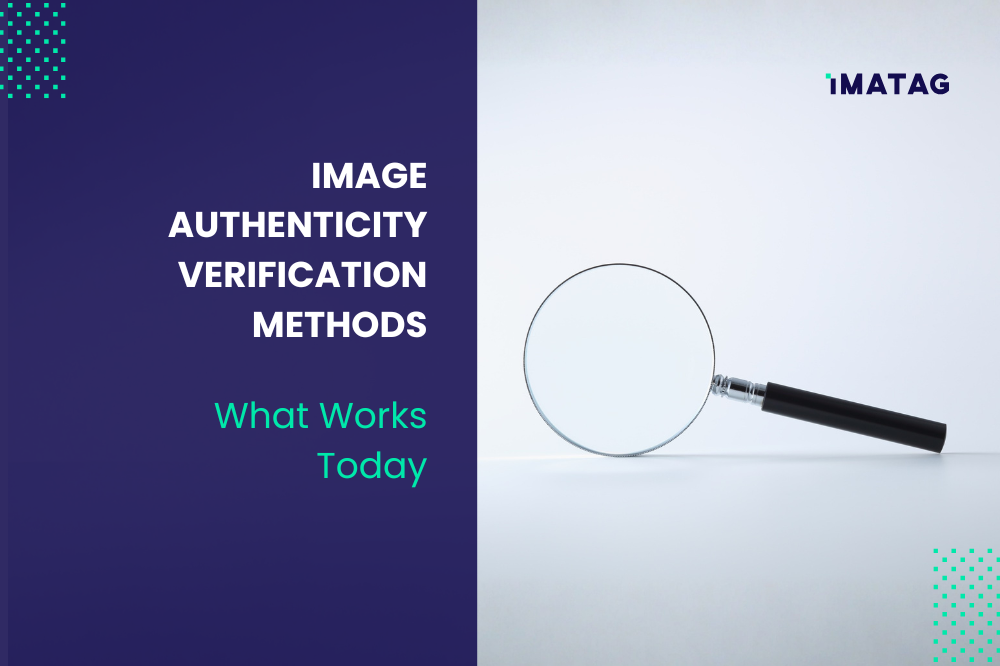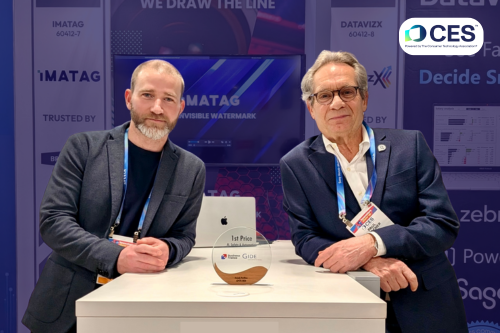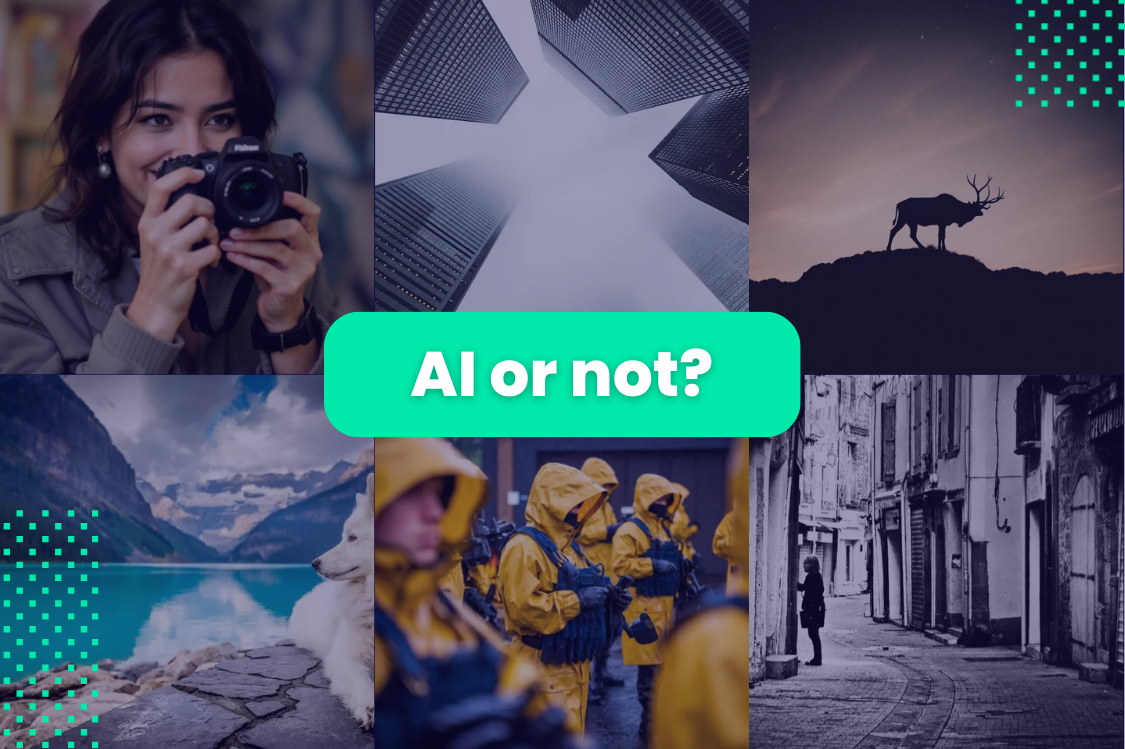
Authenticity & AI Detection
July 25, 2024
EU AI Act Update: New Watermarking Requirements for AI-Generated Content
⇥ QUICK READ
<div class="hs-cta-embed hs-cta-simple-placeholder hs-cta-embed-116492913348"
style="max-width:100%; max-height:100%; width:170px;height:520px" data-hubspot-wrapper-cta-id="116492913348">
<a href="https://cta-eu1.hubspot.com/web-interactives/public/v1/track/redirect?encryptedPayload=AVxigLLehWJ%2FT5pxDsLJlls3YKTMniFVJAhtr9Gj1dIqr53fXjMdWtEzIHnMgWB0Oo20FGIzbHLMjEQC2s7qZSXiermwpBmIEz7EjlBlf9k6qkgL9Ag%3D&webInteractiveContentId=116492913348&portalId=4144962" target="_blank" rel="noopener" crossorigin="anonymous">
<img alt="Do you know which laws apply to you?" loading="lazy" src="https://hubspot-no-cache-eu1-prod.s3.amazonaws.com/cta/default/4144962/interactive-116492913348.png" style="height: 100%; width: 100%; object-fit: fill"
onerror="this.style.display='none'" />
</a>
</div>
Share this article
Subscribe to the blog!
I subscribeLatest updates on the EU AI Act requirements for labeling AI-generated content. Key dates, obligations, and watermarking solutions for compliance.
[Update: July 22, 2024] This article has been significantly updated to reflect the latest developments in the EU AI Act, including specific implementation dates and new details on compliance requirements. For our original coverage, please refer to our previous article on this topic.
The European Union's Artificial Intelligence Act (AI Act) is set to reshape the landscape of AI regulation, with far-reaching implications for providers of generative AI systems. As the deadline for compliance approaches, it's crucial for businesses to understand the new requirements, particularly those related to the labeling and watermarking of AI-generated content. Let's dive into the latest updates and what they mean for AI providers and users.
Key Updates: Critical Updates to the EU AI Act for Content Providers
Implementation Timeline
The AI Act will come into effect on August 1, 2024 (official regulation text). However, the compliance deadlines vary:
- General-Purpose AI (GPAI) systems: August 1, 2025
- All other generative AI systems: August 1, 2026
Transparency Obligations
Recitals 133 to 137 and Article 50 of the AI Act mandate transparency requirements for providers and deployers of generative AI systems. These apply to all synthetic content (images, videos, text, or audio) generated or accessible within the EU.
Mandatory Labeling
AI-generated content must be systematically marked as entirely generated or manipulated by AI, ensuring public identification. This measure aims to combat fraud, deepfakes, fake news, and identity theft.
Penalties for Non-Compliance
Failure to comply can result in fines of up to €15 million or 3% of the total global annual turnover from the previous financial year, whichever is higher.
Technical Standards
The AI Office will define the standard to be followed, likely combining signed metadata (such as the Coalition for Content Provenance and Authenticity (C2PA) standard) with secure and robust watermarking (like IMATAG's solution) to ensure the preservation and integrity of provenance information.
Detection Measures
The AI Office will establish a code of practice to facilitate the adoption of AI-generated content detectors across the content distribution value chain (search engines, social networks, sharing platforms). The Commission reserves the right to enforce the adoption of detectors by relevant actors.
AI-Generated Content Labeling: Compliance and Consequences for AI Providers and Users:
- Urgent need for implementation: while the legal deadlines might seem distant, the rapid evolution of AI technology and its increasing public adoption make early compliance a matter of responsibility and ethics. The UN resolution A/78/L.49 of March 2024 further emphasizes this ethical dimension.
- Watermark providers must ensure their watermarking solutions are robust, secure, and compliant with the standards set by the AI Office. This may require significant technical development and integration efforts.
- User awareness: content creators and distributors need to be aware of these requirements and ensure they're using compliant AI systems.
- Broader impact: these regulations aim to preserve democratic values and human psychological health by combating AI-driven manipulations. Early adoption contributes to a safer internet and more trustworthy AI.
Watermarking Solutions for AI Act Compliance
How IMATAG Can Help: As a leader in digital watermarking technology, IMATAG is well-positioned to help AI providers meet these new regulatory requirements. Our robust watermarking solution can be integrated into generative AI systems to ensure compliance with the AI Act's labeling obligations.
Preparing for AI Act Implementation: Steps for Generative AI Providers
The AI Act's requirements for labeling AI-generated content represent a significant shift in the regulatory landscape. While the deadlines may seem far off, the complexity of implementation and the ethical imperatives make early adoption crucial. AI providers should not wait for the legal deadline to start integrating content watermarking systems.
By taking proactive steps now, businesses can not only ensure compliance but also contribute to a more transparent and trustworthy AI ecosystem. As we navigate this new regulatory environment, IMATAG stands ready to support AI providers in meeting these challenges head-on.
[Note: This article is an update to our previous coverage on the AI Act. For our initial analysis, please see our original article: "AI Act: Legal Requirement to Label AI-Generated Content".]

Secure Your AI Act Compliance Now
Contact IMATAG today to learn how our watermarking solutions can help you comply with the AI Act and build trust in your AI-generated content.
Schedule a demoThese articles may also interest you

Authenticity & AI Detection
February 17, 2026
Image Authenticity Verification Methods: What Works Today

Authenticity & AI Detection
January 16, 2026
CES 2026: What the AI Hype Still Misses About Image Authenticity

Authenticity & AI Detection
December 16, 2025












